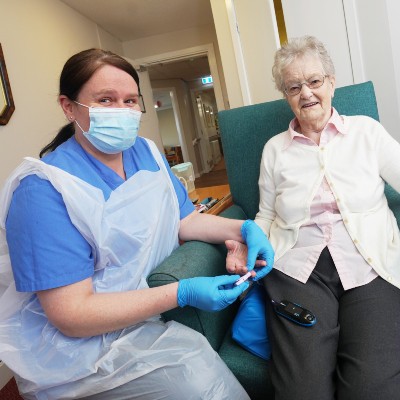
A collaboration between members of the County Durham Care Partnership, which includes Durham County Council’s County Durham Care Academy and County Durham and Darlington NHS Foundation Trust (CDDFT), has seen a new programme set up to help manage diabetes in community settings such as care homes.
A number of care providers have signed up to the scheme, which involves training senior care staff to safely administer insulin to adult patients, a practice which is usually carried out by nurses or health care assistants from CDDFT.
The fully trained care staff will then take over the administration of insulin, relieving some of the pressure from the NHS Trust so that district nurses can focus their time on more vulnerable patients in the community.
The training will enable care staff to take a more personal approach to managing the individuals needs of each resident. It will also allow residents to receive regular treatment each day from people they know well and trust.
It will also benefit care settings during the coronavirus pandemic, as it reduces the number of outside visits.
The administration of insulin is an important element of health care within home or residential care settings. Training care workers to administer insulins allows people with diabetes to be treated within their homes by people they know and will improve the personal management of their condition.
The County Durham Care Academy works closely with local providers to support staff in accessing new training opportunities and in this case with CDDFT to train staff and enable them to provide the right care at the right time.
The changes implemented to the way insulin is administered in residential care settings empowers senior care workers to administer insulin to their residents in a timely and safe manner. It also supports individualised diabetes care by being administered by a senior care worker who is familiar with the support each resident required so it feels more personal to them. They are also able to be given their insulin at a regular time each day and can then go about their daily living activities without having to fit in with external schedules.

